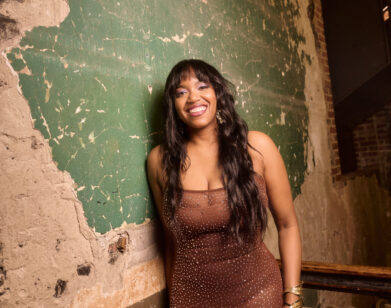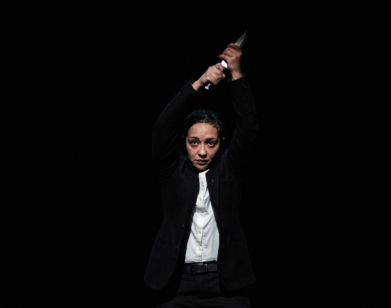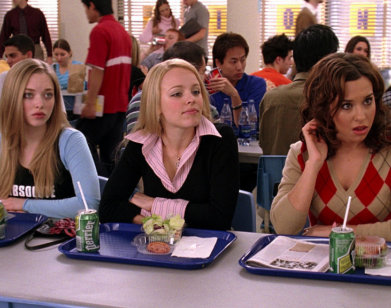Author Édouard Louis Says the Unsayable
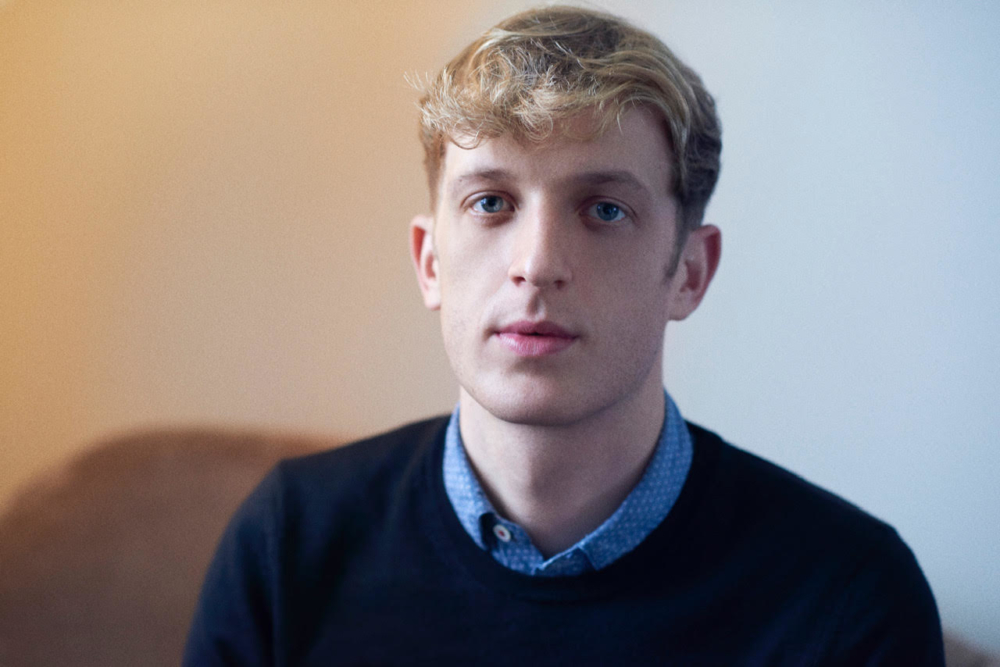
All photos by Arnaud Delrue.
Violence figures prominently in Édouard Louis’s work. His novelized chronicles probe experiences both relatable and unimaginable from his youth. In The End of Eddy, he examined his northern France childhood fraught with bullying and ridicule; in History of Violence, he revisited a rape and assault at the hands of a man with whom he believed himself safe. Both bracingly autobiographical books have now been adapted for the stage, with The End of Eddy being performed at the Brooklyn Academy of Music from November 14–28 and History of Violence at St. Ann’s Warehouse from today through December 1.
Much of Louis’s work finds parallels between personal grief and social strife, and how the two inform one another. His essay, “Why My Father Votes for Le Pen,” was developed into a novel titled Who Killed My Father (New Directions), released in English earlier this year. The book interrogates socioeconomic inequality and explores the plight of the working class—particularly factory workers—in his provincial hometown, Hallencourt. I spoke with Louis in the quaint Oliver Café in New York’s Chinatown about these projects—their origins and impacts—as well as the personal and the political, Edmund White, Simone de Beauvoir, and the luxury of writing in your pajamas.
———
BRIAN ALESSANDRO: The End of Eddy and A History of Violence are both autobiographical novels. What has it been like for you to see these very personal stories translated to the stage?
ÉDOUARD LOUIS: Of course, I’ve been very moved and very happy. Zadie [Smith] and I have had many conversations about it. For me there is something very beautiful in theater about appropriation. People are suddenly in charge of my story, taking my story from me. Being in charge of my struggles and the issues I want to fight for and fight against. There is something very emancipatory about this experience. It was the core of History of Violence. To be in charge of a story that you did not choose. It’s about more than survival—that feels imprecise. The book is a reflection of a story that is happening to me, being raped and almost killed. I go to the police to report it and suddenly I’m the one in charge of telling the story again and again to the police and to the lawyer and to the doctor, again and again, and I’m suddenly asking myself, why should I be the one carrying that story on my shoulders? I didn’t choose to experience it. I think I have the right to not talk about it in a way. It’s complicated, because I want people to talk about things when they experience things. But we also have a fundamental right to not carry a pain that we did not choose. Whether you’re born black or gay or a woman or Jewish, you didn’t choose it. You have to be the person in charge of it saying your story, again and again. When it is something you are forced to recount, there’s something violent about it. Theater is a positive appropriation. They are carrying these issues for me, talking about male violence, sexual violence, systemic violence.
ALESSANDRO: It’s almost like a relief. To absolve yourself of the burden of telling it.
LOUIS: Exactly! I think there are some good kinds of appropriation. It’s not necessarily bad. Unless you’re caricaturing people, to represent them in a bad way, that is something else. The [biracial] character, Joe Christmas in Faulkner’s Light in August. He’s walking in a black neighborhood and then suddenly he’s running away from it. He doesn’t want to carry that story. He’s already suffered enough. I felt this way about my story. Why do queer people have to keep telling the story? In a way we deserve to rest. The theater fights for us.
ALESSANDRO: How involved were you in the adaptations?
LOUIS: For The End of Eddy, I was not involved. I just went to the premiere. I always give complete freedom whenever someone is doing an adaptation. It doesn’t belong to me anymore. I want people to do whatever they want and not stop their creative process by telling them what is bad or good. For History of Violence, I worked closely with [the director] Thomas Ostermeier. I went to Berlin. When I was a teenager, I wanted to be an actor. Theater was the biggest part of my life.
ALESSANDRO: I didn’t know that about you.
LOUIS: Oh, yes! It’s a very banal gay story: as a gay child, I didn’t feel comfortable in my family. I grew up in a working-class milieu where my father would say every day that we have to kill gay people. We have to get rid of gay people. We have to put gay people in concentration camps. I didn’t have any friends in school, and people called me “faggot.” One day in middle school, a teacher formed a theater class, and I went because I was desperately searching for a place where I could be loved and accepted. And suddenly it was unbelievably easy. Since my childhood I performed to protect myself. Pretend to like girls, pretend to like soccer. At thirteen years old, I finally knew what it meant to be myself. And for the first time, people were smiling at me, clapping for me. The sound of people clapping covered the sound of people protesting and insulting me.
ALESSANDRO: That’s beautiful.
LOUIS: It’s so true. Theater became a place to escape. I was just trying to be free. Later on, I learned to love Shakespeare, Elfriede Jelinek.
ALESSANDRO: She’s great.
LOUIS: She’s so wonderful. And then I learned about Thomas Ostermeier. He was a hero for me when I was a teenager. And then he calls me and tells me he wants to make an adaptation of History of Violence. And so I cried for five days. [Laughs.] And then I took a plane to Berlin and we worked together for three weeks and it was a magnificent experience.
ALESSANDRO: Those kinds of collaborations are so rare and precious, especially for us writers because what we do is so solitary and isolating.
LOUIS: Absolutely! For me it was so new. Because as a writer I spend so much of my day alone in my pajamas! But I don’t complain! I hate writers who complain about their jobs because they should go to the factory and they will know what it is to have a hard job. I would feel ashamed complaining about my job as a writer.
ALESSANDRO: It’s a luxury!
LOUIS: Yes, it’s a luxury. But there is this loneliness, too. And then working with these actors and director was fascinating. And it wasn’t my story anymore and it felt so good. And they were so delicate at the beginning. They were asking me, “Are you okay? We are embodying your story!”
ALESSANDRO: I wondered what kind of a reaction the performers and the director had because they are telling a very personal, intimate, sensitive story that is yours. They must have been cognizant of that the whole time.
LOUIS: Yes, and we spoke about that, but unfortunately this story is collective. Sexual violence, police violence, racism. Everything I try to deal with in History of Violence. For me, writing my books is a way of giving tools to people to talk about themselves. The feelings and things happening around us are infinite. To write about something is to make things sayable and speakable to other people. When Simone de Beauvoir published The Second Sex, suddenly there were so many women saying, “I had all these feelings, but I couldn’t speak about them!” Thousands of letters from every continent, saying, “I couldn’t articulate these things, but now they were sayable!” When I write my books, I write them because I want people to speak about themselves. It’s the best gift someone can give me, when they say your story is my story and they talk about themselves.
ALESSANDRO: Your stories serve as a mouthpiece or conduit for everyone’s story.
LOUIS: Right. What I try to do in a way is write a collective autobiography. Now in the United States, they all speak about autofiction. It’s everywhere. In France, they were doing this ten years ago.
ALESSANDRO: Like most things, we catch up later.
LOUIS: [Laughs.] What was called autofiction in France was very bourgeoisie, very self-centered. Through the process of writing, I try to speak about the experiences that surround me. Like with The End of Eddy, it’s more than about the child I used to be, or failed to be, but half of the chapters are about other people—my mother, my father, my cousins, the boys in the village, the school. The reality works as a structure. If you don’t understand the whole structure, you can’t understand the whole thing. If you want to understand masculinity, for example—you cannot understand masculinity without understanding what it means to be queer, or a wimp. What it is to be subjected to violence. When I was a child, my father would always say about himself, “I’m not a faggot, I’m not a woman. A woman would do that!” My father was more determined by homosexuality than even I was. For him, homosexuality was a ghost haunting him. And all his life, he and many of the working-class boys around me, they were building their identity as a negation. They didn’t want to look like a faggot, to look like a woman.
ALESSANDRO: Do you think in some of the cases, there were issues of denial on their part? Were they maybe closeted themselves? Hating that part of themselves?
LOUIS: No, I think it was a matter of violence. They were building their identity through their rejection of another identity.
ALESSANDRO: Asserting their masculinity by being brutal and aggressive.
LOUIS: Exactly! Exactly! When I talk about the queer people and the men and the women of the village, they all work together. It’s incredible how straight men are defined by homosexuality, by the sociological fear of looking gay. My father left school as soon as he could because to obey the professors and what appeared to be submissive to the school system was something considered feminine. If you are a real man, you challenge the rules, you don’t obey. And so, because of homophobia, he left the school system very young. He had no diploma, and because of that he had very hard jobs, very badly paid throughout his life. That’s why I try to articulate all these things. That’s why I call it a collective autobiography. If you want to comprehend a reality, you have to rebuild the whole structure. All the realities are built in violence. What is rejected from something in order to become something else.
When we say literature, what is being excluded? When we say masculinity, what is being excluded? When we say nationality, what is being excluded? The truth of nationality is the border between people who have access to certain rights and others who do not have access to certain rights. Every reality is secretly built upon the rejection of something else.
ALESSANDRO: It’s a beautiful and rich philosophical concept. What I love about your work is that you start small, with yourself and your own experiences, and then you reach out to include other people’s perspectives and experiences. You write so much about the interplay between the personal and the social, the private and the political.
LOUIS: I just don’t see any difference between the personal and the social. As soon as I read literature and philosophy, I understood that my body was at the intersection of so many histories that other people were sharing, too. When I published The End of Eddy, I said that when I escaped the milieu of my childhood and read Hannah Arendt and Michel Foucault, I was trying to understand something about the way our world is working. Even my tears were political as a child because they were due to certain social situations where homophobia was possible, where masculinity was that strong. The differences are not natural. Our societies are building differences as meaningful. Growing up as a faggot was built as something heavy. I suffered. In a less masculine world, in a less homophobic world, I would not have been suffering like this. My deepest feeling is part of something bigger.
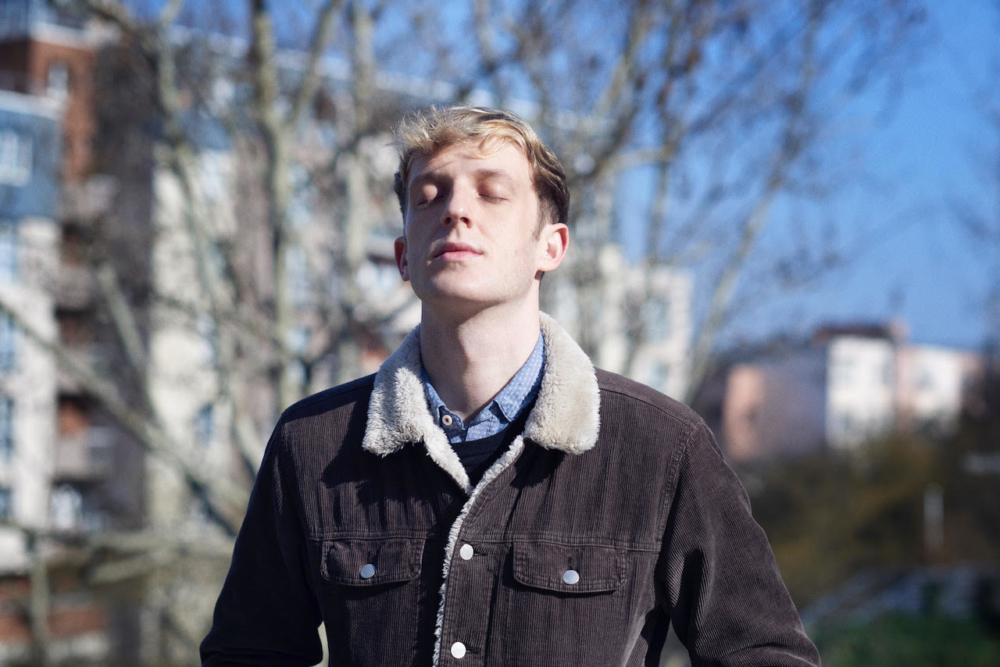
ALESSANDRO: So, it never feels too personal? Is there ever a point where you say, I don’t feel comfortable sharing this?
LOUIS: No, that is precisely when I want to talk about it. When it feels too private. In a way, I erase all the other things from my writing. When it’s too private, too complicated, I tell myself, ah, this is what should be written! The border between what is political and private is a historical and social border. And once again, when de Beauvoir published her book, there were some people, like Albert Camus, telling her, “Oh, you write women’s stories, it’s not political, who is cooking, who is cleaning. Politics is about class, structure!” But de Beauvoir removed the border between what was political and private. She received backlash when she wrote about the death of her mother. They said it was vulgar. And the same thing with the LGBT movement. In the 1960s and 1970s, they were saying our bodies are political. So, what we call private is often what is being violently put into the shadows of society by society. I try to remove that border when I write.
ALESSANDRO: Do you think that style could be a difference in gender and gender identity? That women and gay men don’t see a difference between the social and the personal, but many straight male writers do see them as separate things, clearly demarcated?
LOUIS: Yeah, clearly. And of course, we gay men and women share so many struggles. My father would go to a café in our village where I was not welcomed. The factory workers would go, and it was a place for masculinity. I stayed home with my mother and sister because my father was ashamed of me. We were the family of the faggot. The insults that built me were insults for the people around me because it was spreading out. My mother was so scared of my homosexuality that she would say, “Eddie is not gay because he is always with girls!” Of course I was with girls! They were my only friends! Very early on, I understood that gay men and women have something in common. When you think about James Baldwin and Xavier Dolan, you see that they bring the issues of gay men and women together because we are all suffering from the issue of masculine violence.
ALESSANDRO: I used to teach the psychology of gender and human sexuality, and there’s a fair amount of evidence to support the similarities in brain structure and chemicals between gay men and women.
LOUIS: Uh-huh!
ALESSANDRO: A lot of your work is very specific to Hallencourt, in northern France. How important is location in storytelling?
LOUIS: [Laughs] It’s funny that I hear the name of this village in New York. I never thought it would happen! The place is so small, and I grew up there. It allows me to be precise about feelings. It works as a mechanism of violence and desire because I focus on this very small place where I grew up. If I tried to focus on the history of the world, I would be writing in abstractions and caricatures. By writing about my small town, I can put light on certain mechanisms that you can find everywhere in the world.
ALESSANDRO: It becomes emblematic.
LOUIS: Yeah, exactly! What surprised me when I started getting published is how similar things are. I went to Japan, Kosovo, the US, and I found the same mechanism of masculine violence, homophobia, racism everywhere. They work differently according to the country, but in spite of the differences, there are structures you can find everywhere.
ALESSANDRO: Universal truths.
LOUIS: Exactly. Every single story is local. But there were so many stories that were presented as universal because they were written by people of the urban white bourgeoisie. I remember a white journalist once asked Toni Morrison if she would write about white people one day, as if she were writing a too localized story.
ALESSANDRO: Oh my god. It’s embarrassing, the journalist’s ignorance.
LOUIS: Toni said to her, “You can’t imagine how racist your question is.” It was a beautiful, strong moment. It’s like, as if white people’s stories are more universal and black people’s stories are more local.
ALESSANDRO: Thankfully, we’re seeing a push back against that sensibility now in publishing and the arts, finally.
LOUIS: Yes, yes!
ALESSANDRO: Zadie Smith wrote a piece about “creative voyeurism” in The New York Review of Books in October 2019. What are your thoughts about writing from the perspective of people outside your race or culture or gender?
LOUIS: I think that the question is, what is this person is saying? The question is not, who is this person? The ability to talk about anything is extremely important. If you only talk about your experience, it means that certain stories will never be told. Primo Levi wrote about surviving the concentration camps during the Holocaust. Writing as a witness! Levi said, “The more I think about it, the less I consider myself a witness because the people who experienced fully what the concentration camps were, are now, by definition, dead. They died because of it. So, if you live the experience to the end, to its greatest extent, you died. I can talk about it because I am privileged.” Some people will not be able to tell the story because it kills them. Some stories will never be told if it were not other people telling the stories. And then there are stories like poverty that take the voice away.
ALESSANDRO: It brings us back to your original point, unburdening yourself of the story.
LOUIS: Yes, and when I was a kid, I saw a production of Angels in America and I stormed out of the theater and said I don’t want to see this faggot shit. Other kids accused me of being homophobic.
ALESSANDRO: We have a common friend in Edmund White. Ed once inspired me to write a short story about abusive, exploitative older gay men taking advantage of a young, poor man. He was exhausted by the push to portray gay men as saints or victims and called for more “bad gay guys” in stories in a 2017 New York Times interview. So, I wrote one titled Please and PANK published it. What are your thoughts about this impulse in literature to portray gay men in such limited ways?
LOUIS: Maybe this is the case only in American commercial literature. In the books that I’m reading, I see some complex gay characters. Garth Greenwell. Ocean Vuong. Ed’s [Edmund White] books. I see a lot of complexity. It’s probably the case of mainstream literature. But I don’t care about mainstream literature! The people I am talking about are successful because they are doing something radical. Ann Carson’s Autobiography of Red is one of the most powerful pictures of gay desire and complexity and love. Maybe it’s because here in the United States, the mainstream literature is everywhere.
ALESSANDRO: It permeates the culture.
LOUIS: It’s like a bestseller section in the airport bookshop is supposed to be something meaningful! It’s very bizarre.
ALESSANDRO: Complexity is not commercial.
LOUIS. So many great and commercial works were successful at the basic levels, like de Beauvoir and Philip Roth. They succeed due to complex reasons. Sometimes by accident.
ALESSANDRO: Your most recent book is Who Killed My Father. It deals with the abuses of the working class. The “labor violence,” as you call it. Can you say more about this concern?
LOUIS: I wanted to write the story of my father. When I was a child, I didn’t really have a relationship with him. We would never talk. He was this working-class guy obsessed with masculinity. And I was this feminine boy defeating his expectations. As a child, I was too stupid to understand what he was going through and how poverty was getting under his skin. It was making him violent.
ALESSANDRO: In the book, you state that “Jacque Chirac grew into my father’s intestine.”
LOUIS: When you are subjected to violence all day long, all the time, every day like poor people are, it’s not surprising that they end up doing violent, homophobic things. There is also violence in the bourgeoisie, but it’s just not my subject. I’m not interested in them. They have enough speeches about them. They have enough books about them. Talking about this milieu, the poor, the working class, it’s a psychological and sociological law that we observe every day in our life. People go home and say something aggressive to someone they love because they are so anxious because of their struggle. You become the current of the violence. The violence becomes part of you.
I try to understand the violence that my father was applying on other people and the violence he was suffering from. Surprisingly, when I published my first two books, my father called me and said he was proud of me. It was very rare. I went to visit him in the north of France and saw that his body was completely destroyed and he’s still very young, only in his fifties. He had trouble walking, breathing. I decided to write about him. I tell the story of his life through the story of the last thirty years of French politics. What is personal is political and what is political is personal. The policies of Macron, Sarkozy, Chirac, are part of my father’s flesh. When Macron decides to cut the welfare from the poorest people while cutting the taxes for the richest… Five Euros less for my father means two days without eating for us. I built this book as a tragedy. The destruction of one body. Like with Antigone. At that time, I was translating Ann Carson’s Antigone into French. I was really into Greek tragedy. I wanted to say the names of the people—Sarkozy, Chirac, Macron—who destroyed my father. It doesn’t matter if you don’t know the names. I hope that people felt it in the US. You don’t need to know Creon in order to know that he kills Antigone. And you don’t need to know Sarkozy in order to know that he killed my father. It’s a book about my father. It’s not a book about Sarkozy.
ALESSANDRO: Many people in the United States, say, “I’m not political. I don’t discuss politics. I don’t care about politics.” They don’t understand that the political can’t be more personal.
LOUIS: Yes. A decision from Macron is as personal for my father as his first kiss. It’s part of his personal story. His ability to live, to eat. There is a mainstream discourse that is working. There is a way of thinking that leads people to believe that the more powerful you are the less responsible you are.
ALESSANDRO: You recently spoke about literature “as a weapon.” Can literature effectuate change?
LOUIS: Literature that is not a weapon is a shame! It’s a waste of paper. People are cutting down the forest for paper. It has an awful environmental impact, so if you’re not writing to fight it’s not worth it. But it doesn’t mean violence. Writing a story of love could be the most radical weapon when you are living within a homophobic society. There is a beautiful quote from Michel Foucault—he said, “Homophobic people do not care about gay sex, about men fucking men or women fucking women. What really scares them is to think of a man who wakes up happy next to another man.” In this context, to write a story of two people happy together was very radical and a kind of weapon.

